Submitted by
Neri&Hu Creates A Meandering Journey In The Extension Of The Qujiang Museum Of Fine Arts In Xi'an
teaser5-1--2--3--4--5--6--7--8--9--10--11--12--13--14--15--16--17--18--19--20--21--22--23--24--25--26--27--28--29--30--31--32--33--34--35-.jpg Architecture News - Mar 08, 2023 - 12:27 2109 views
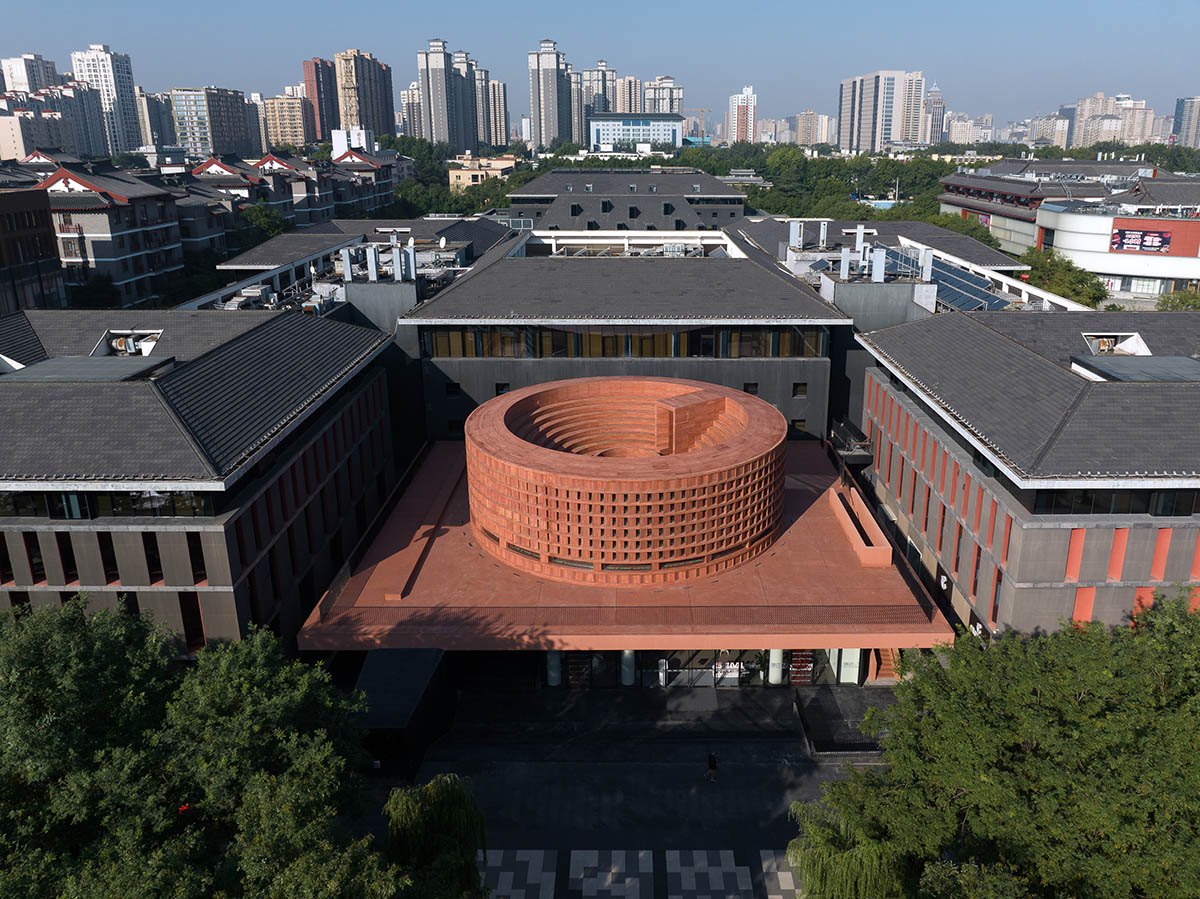
Shanghai-based architecture studio Neri&Hu Design and Research Office has created "a meandering journey" in the extension of the Qujiang Museum of Fine Arts in Xi’an, China.
Called The Urban Monument, the studio created a bold, sculptural and massive extension that invited people to an exploratory journey within the building. While navigating the building, visitors can deeply feel the sense of heaviness of the building.
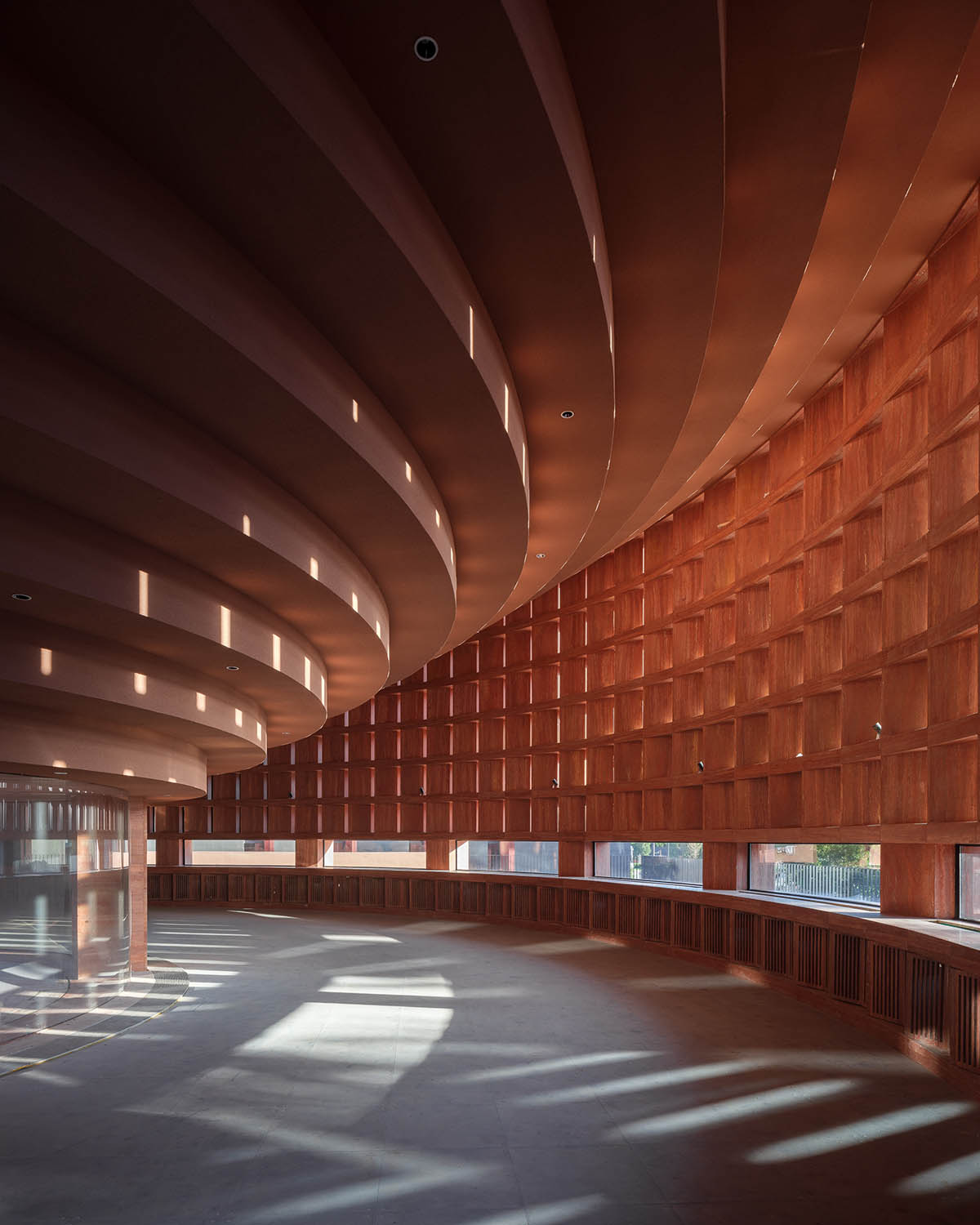
Encompassing a total of 1,990-square-metre area, the building is located at the beginning section of Xi’an’s Datang Everbright City, south of the famed Giant Wild Goose Pagoda.

The client commissoned Neri&Hu, led by Lyndon Neri and Rossana Hu, to design a new architectural icon at the East Entry of the museum.
In response to the brief, the studio worked on a proposal that "takes the idea of a monolithic urban monument as a guiding concept to not only satisfy the museum’s newly expanded cultural and commercial functions, but to also serve as an anchor and a durable symbol of social history for the surrounding urban fabric."
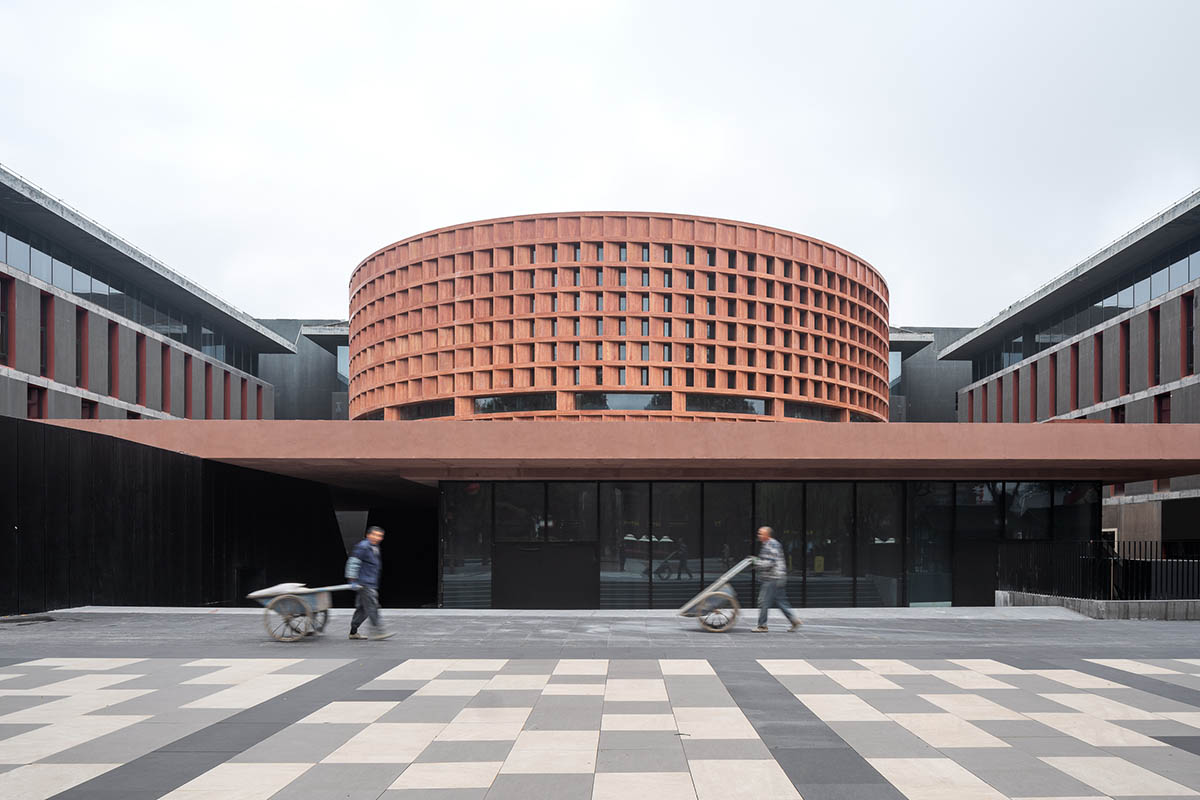
Image © STUDIO FANG
The layout of the museum is based on a simple geometry: a rectangular base that is used for public amenities and a circular, sculptural massing where a lounge is situated in between the walls of the circular volume and the walls of the conic-shaped geometry.
Retail units and escalators are placed at the base of the building, while inside the circular volume is dedicated to an amphitheater to increase public use, which is left open.
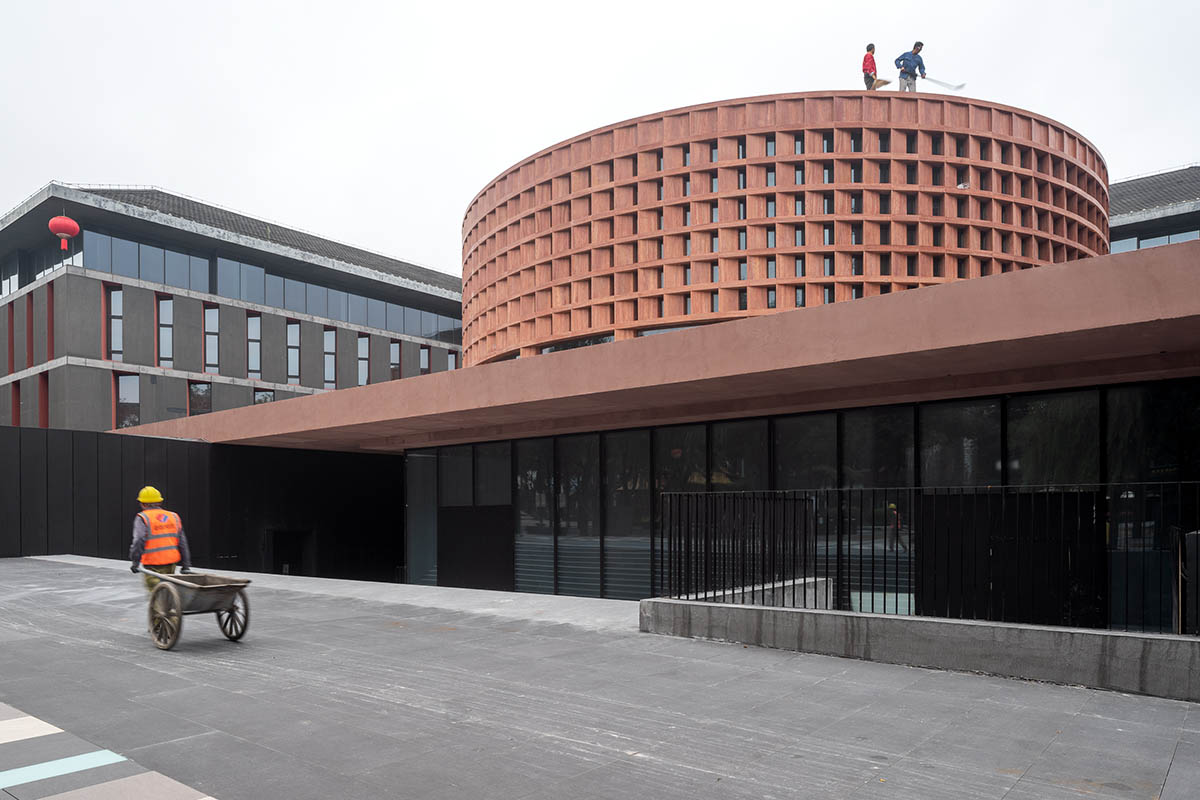
Image © STUDIO FANG
"Since the vicinity of the site is occupied by existing galleries, the design intervention minimizes the impact of the new building through careful consideration for the architectural massing and detailing," said Neri&Hu.
While articulating the program elements, the studio divided the building into four parts: the partially sunken Base, the Sculptural Walk circulation enclosure, the elevated podium Platform, and lastly the Monument.
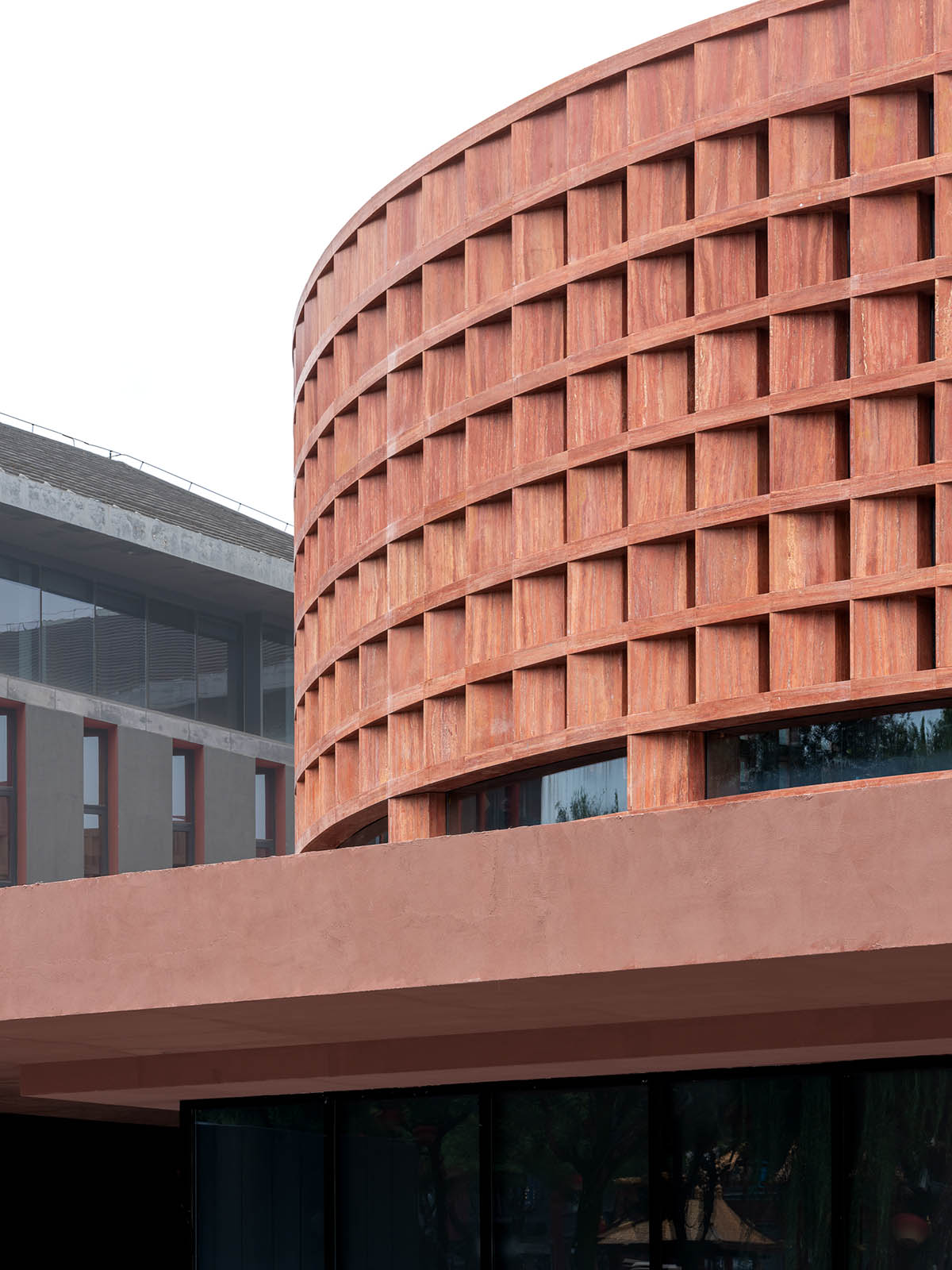
Image © STUDIO FANG
The entire base was finished with cast-in-place concrete. To be able to create a continuous ground floor at the base, it was partially sunken from the level of the existing plaza.
At the entry to the first floor, the architects has partially retained the original wide steps in which they descend down to connect to a sunken piazza.
The former museum's spaces and restaurant, which were originally retained, are located at the solid base, alongside with newly inserted functions such as retail spaces and public restrooms.
According to the studio, "these inserted functions complement the activities of the adjacent pedestrian street."
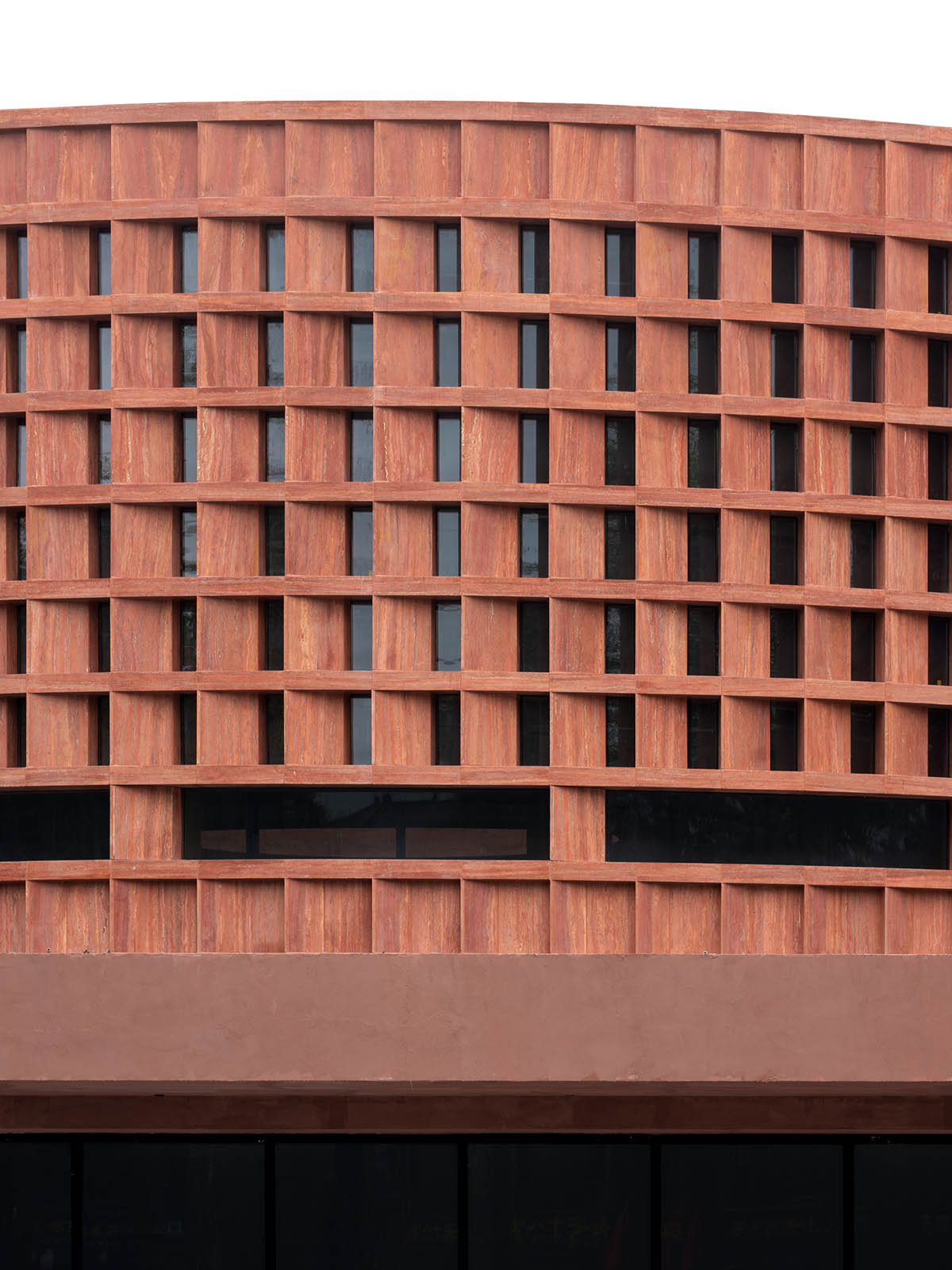
Image © STUDIO FANG
"A sense of drama and intrigue"
From the ground level plaza, a series of escalators lead to the underground museum on the second basement level. The architects also concealed the escalators within a sculptural form, featuring spaces of sectional play between compression and expansion, capped with a triple-story light well at the base of the sunken piazza, providing a sense of drama and intrigue.
Hovering just above the sunken base is an elevated podium, called Platform. The Platform is expressed as a post and lintel construction, made of a grid of stone columns and glass curtain walls supporting a floating roof house retail spaces.
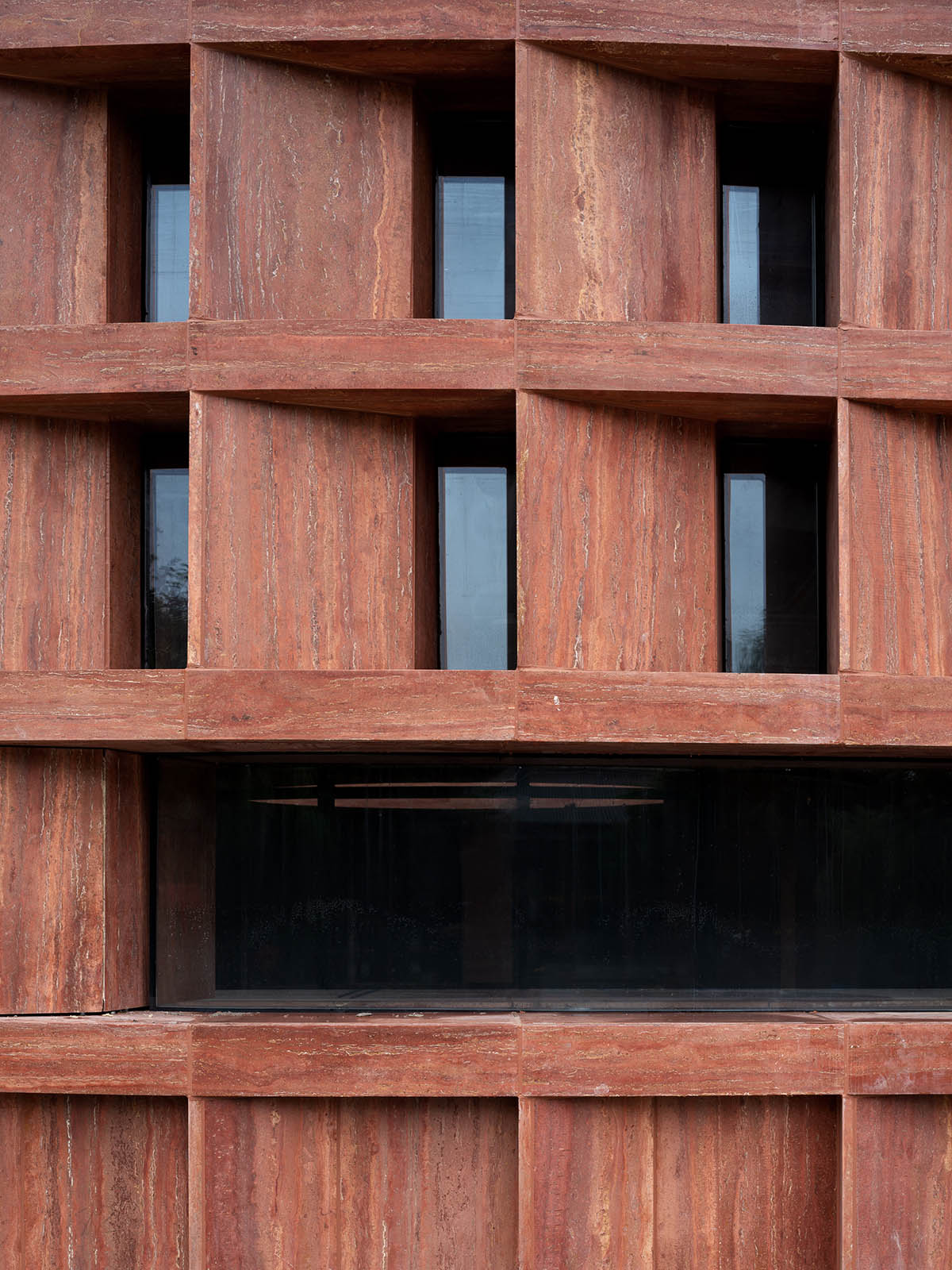
Image © STUDIO FANG
"This retail level is intentionally expressed as a curtain wall to highlight the separation between the carved language of the base, and the circular sculpted massing of the civic potency above," added the studio.
The Monument, making a bold statement in the building, houses a lounge on the second floor and an outdoor amphitheater above. The outer skin is composed of diamond-shaped red travertine masonry units arranged at intervals to accentuate the transmissivity of light.
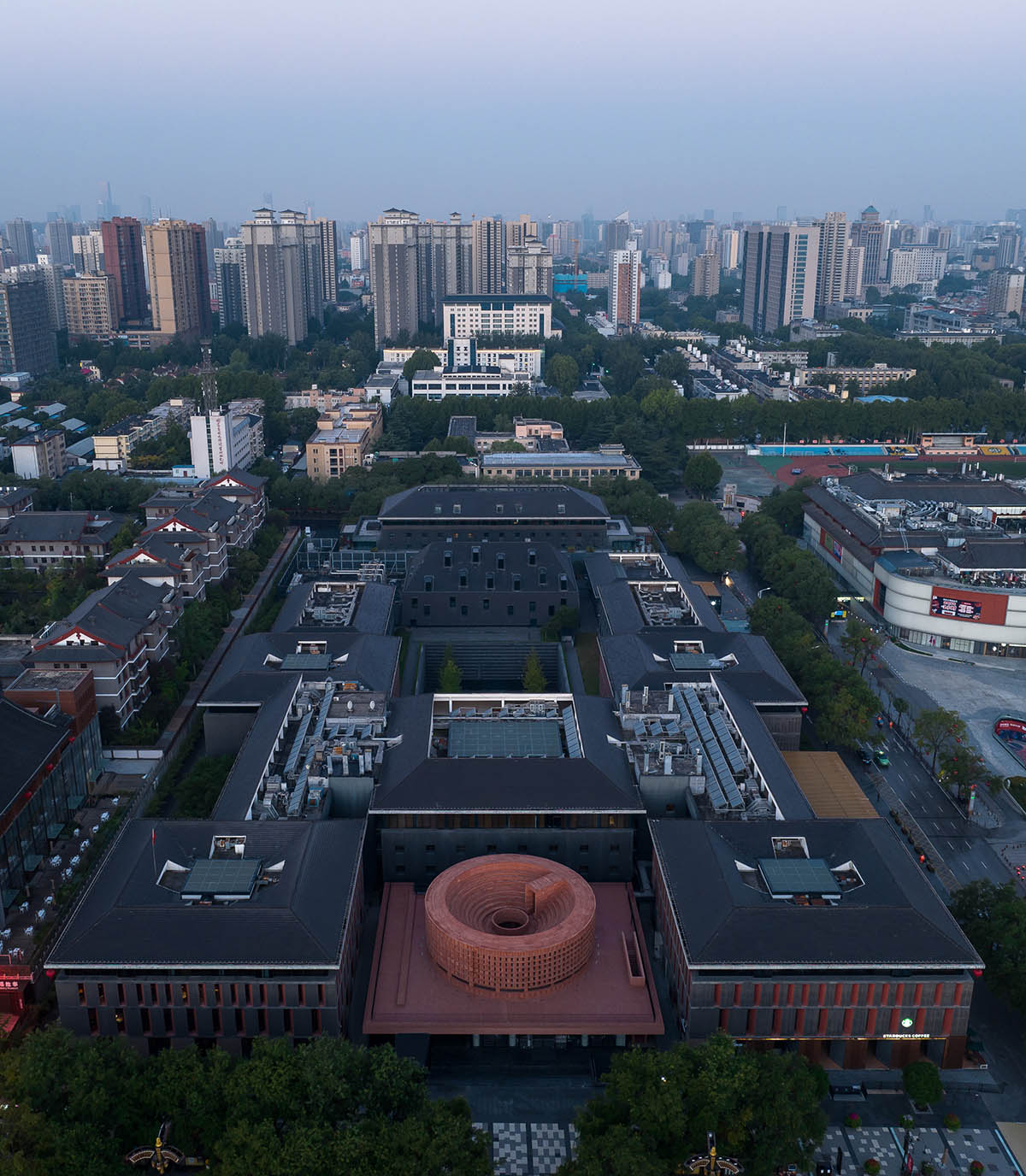
On the northwest end of existing museum building, there is a passage that leads directly to the second-floor outdoor terrace, conceived as a hollowed-out bowl shaped amphitheater.
As the studio explained, the terrace acts as "a grand extension" to the dining and entertainment programs of the lounge.
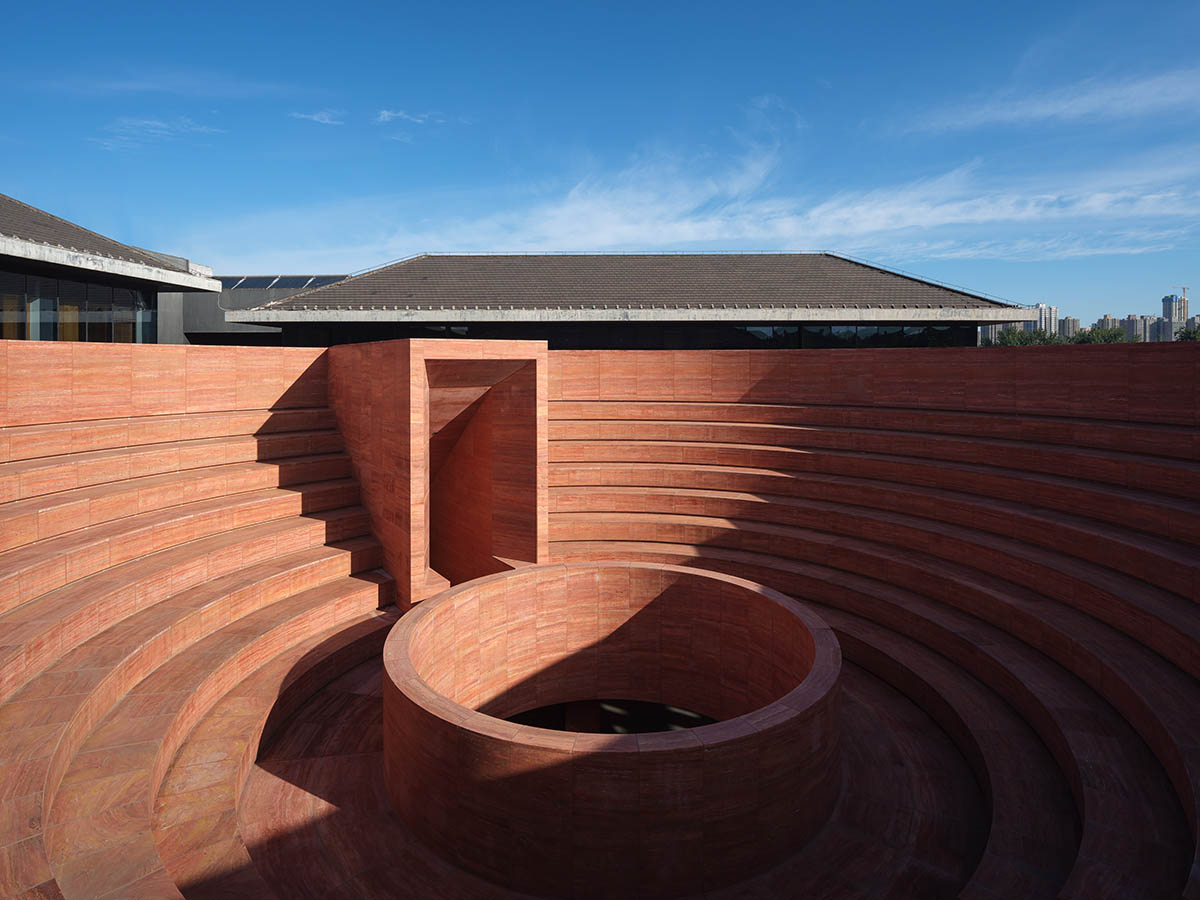
This space can also be used as a forum which is open to the public as a venue for various activities, while also serving as a platform for private performances and catwalks.
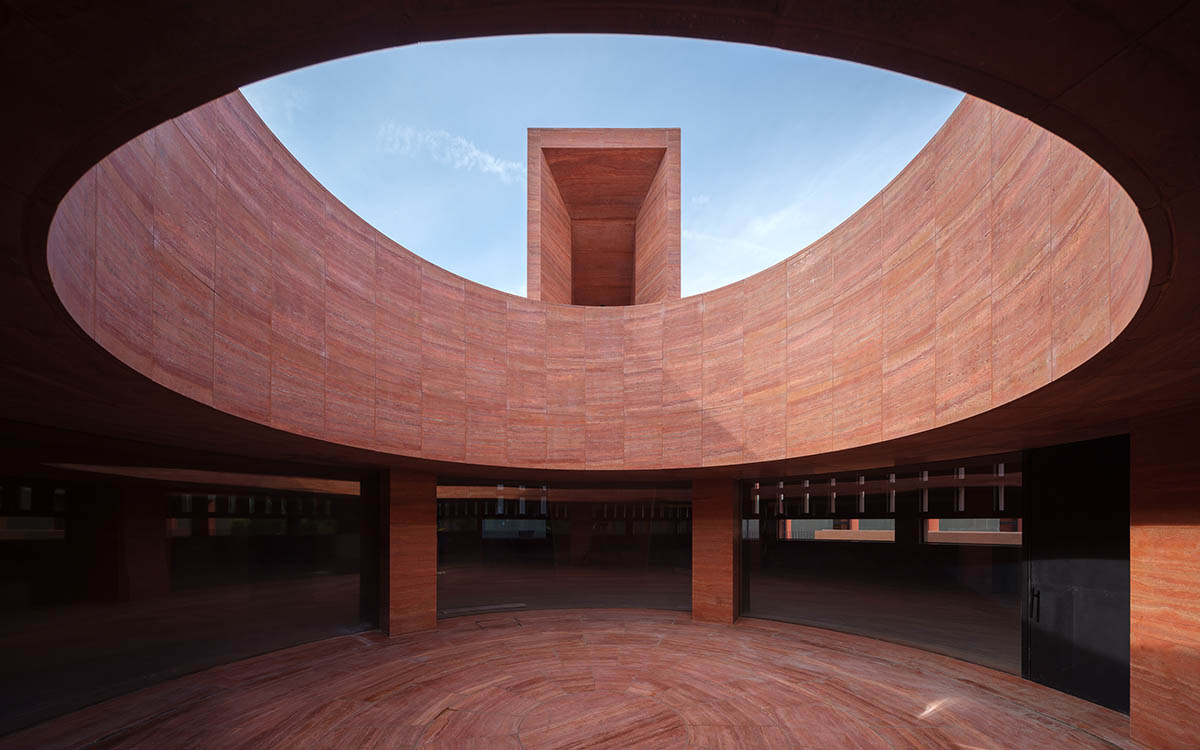
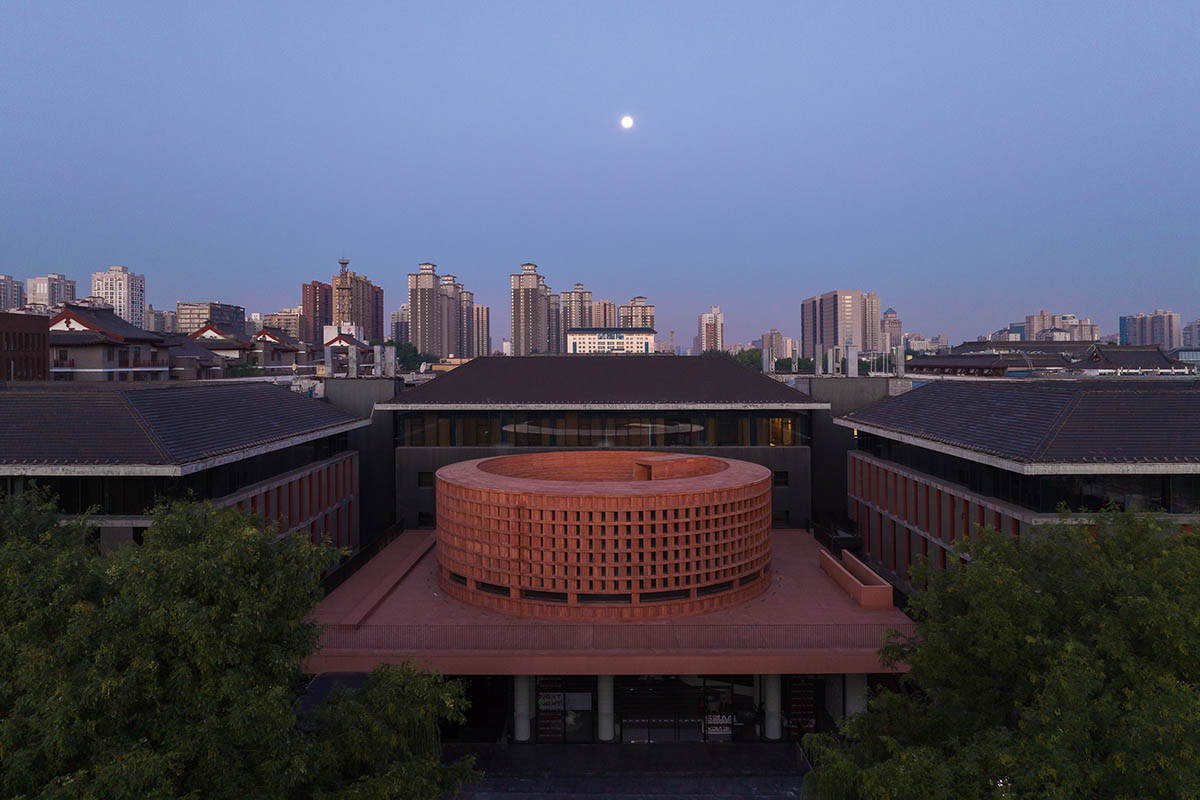
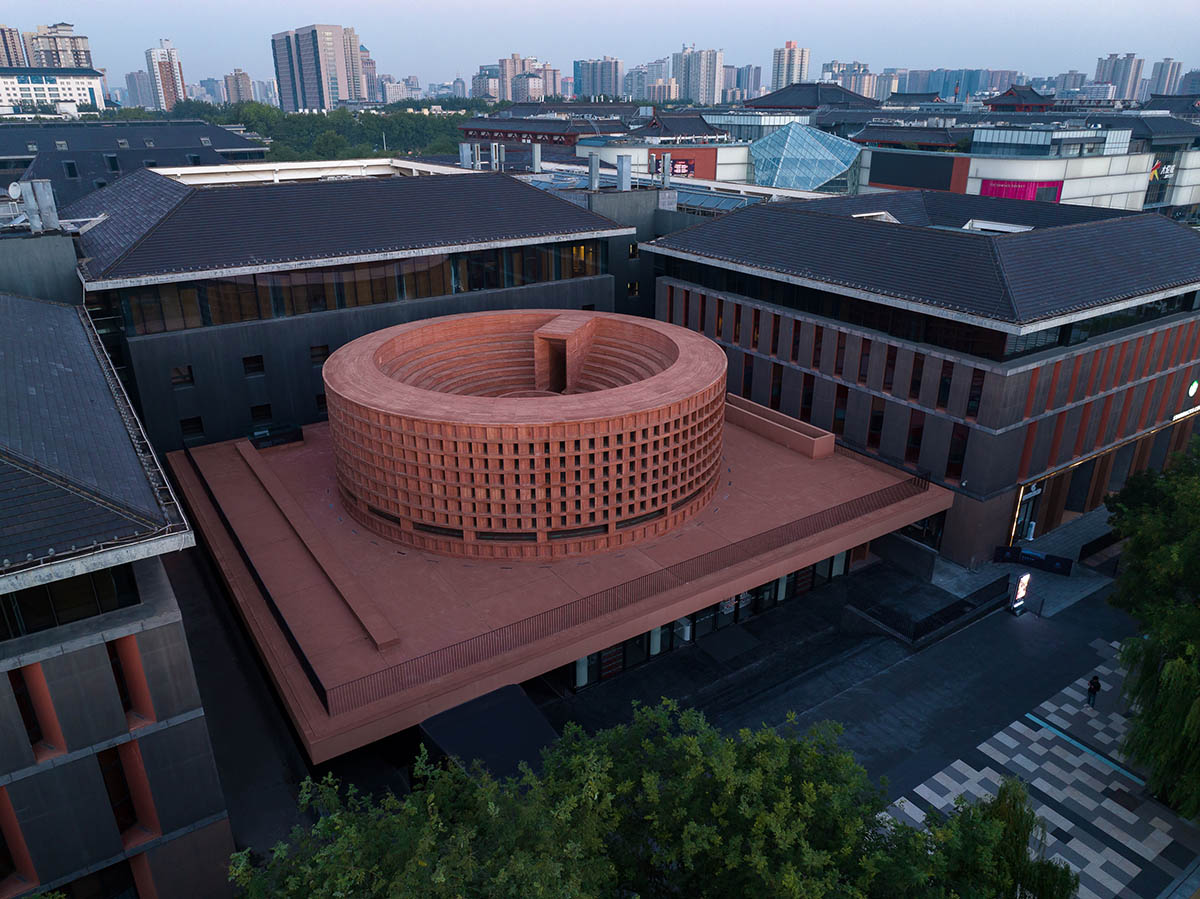
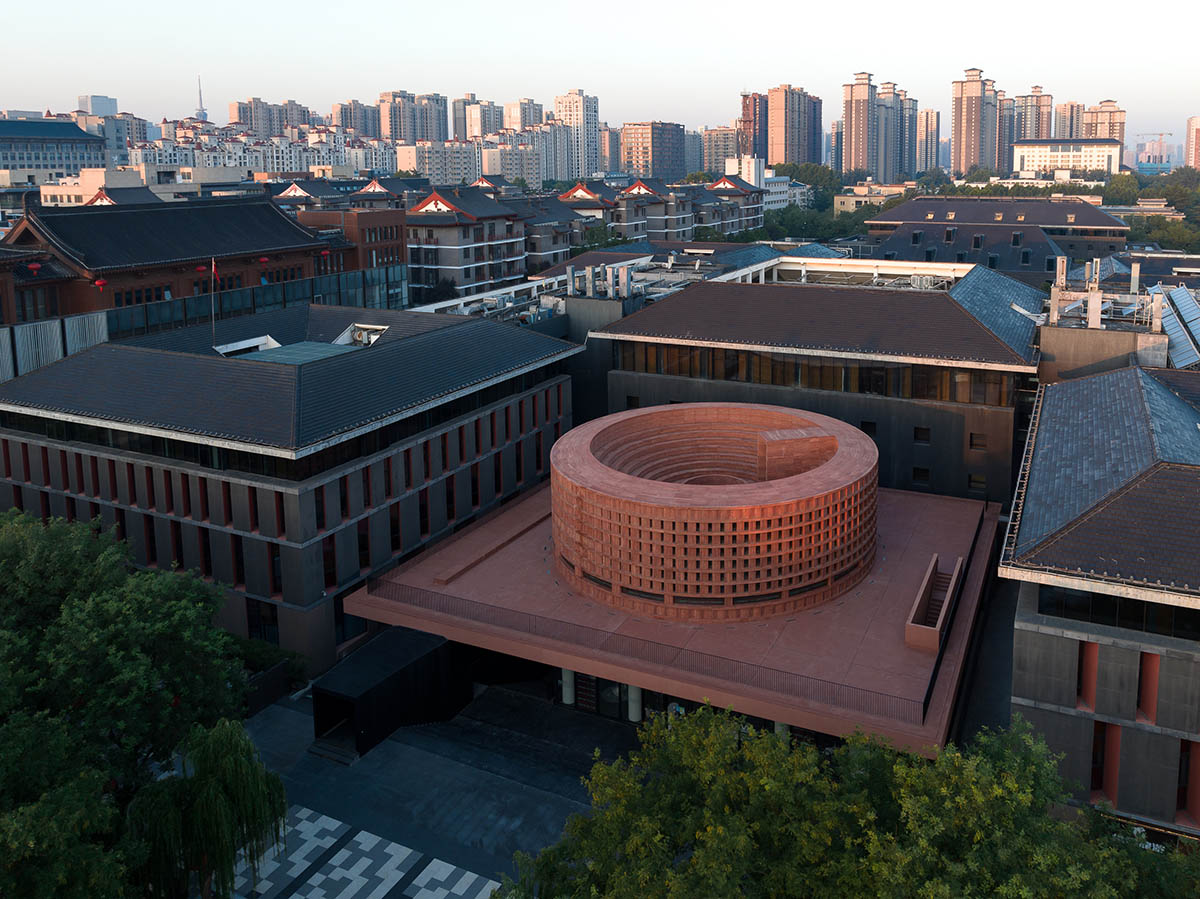
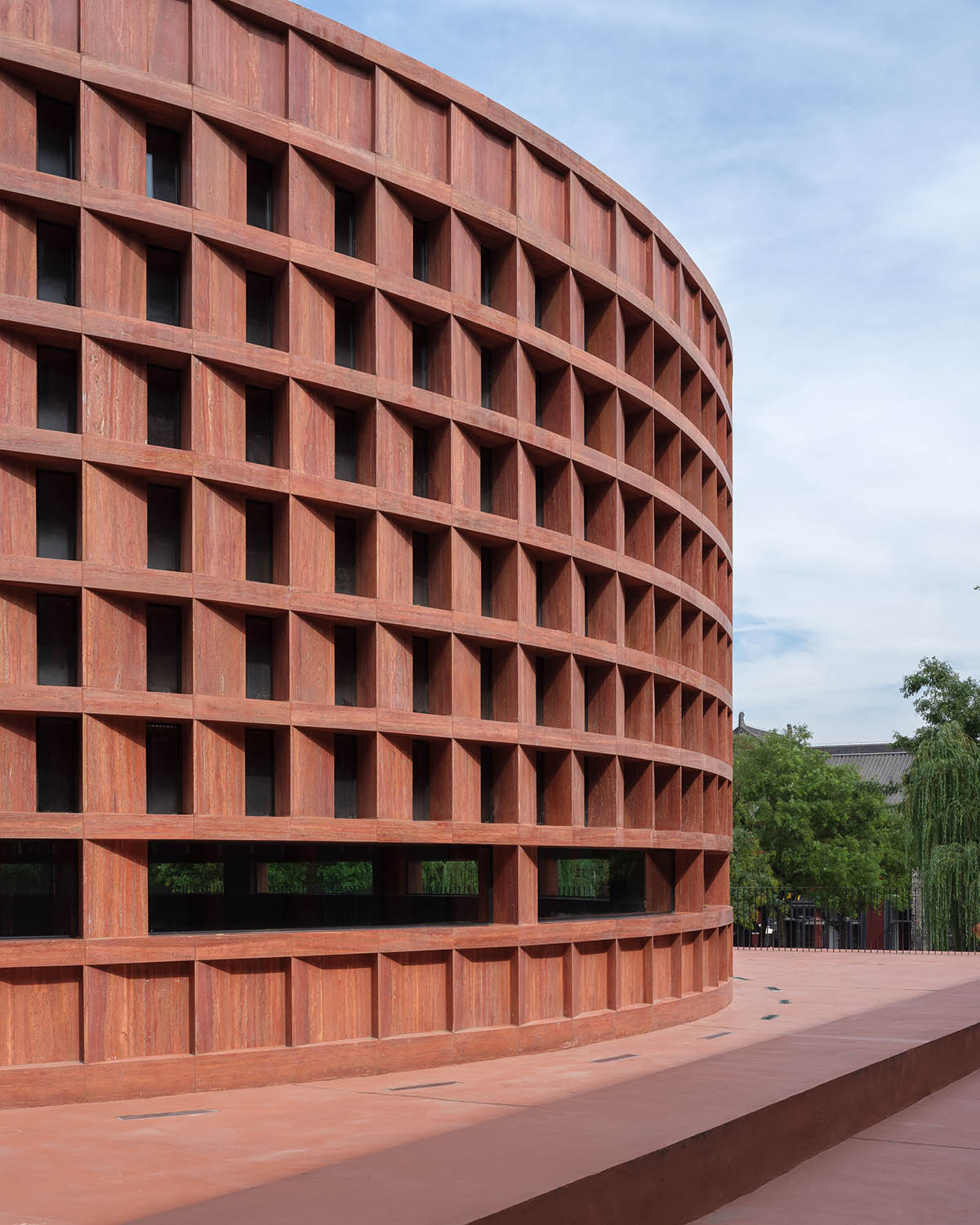
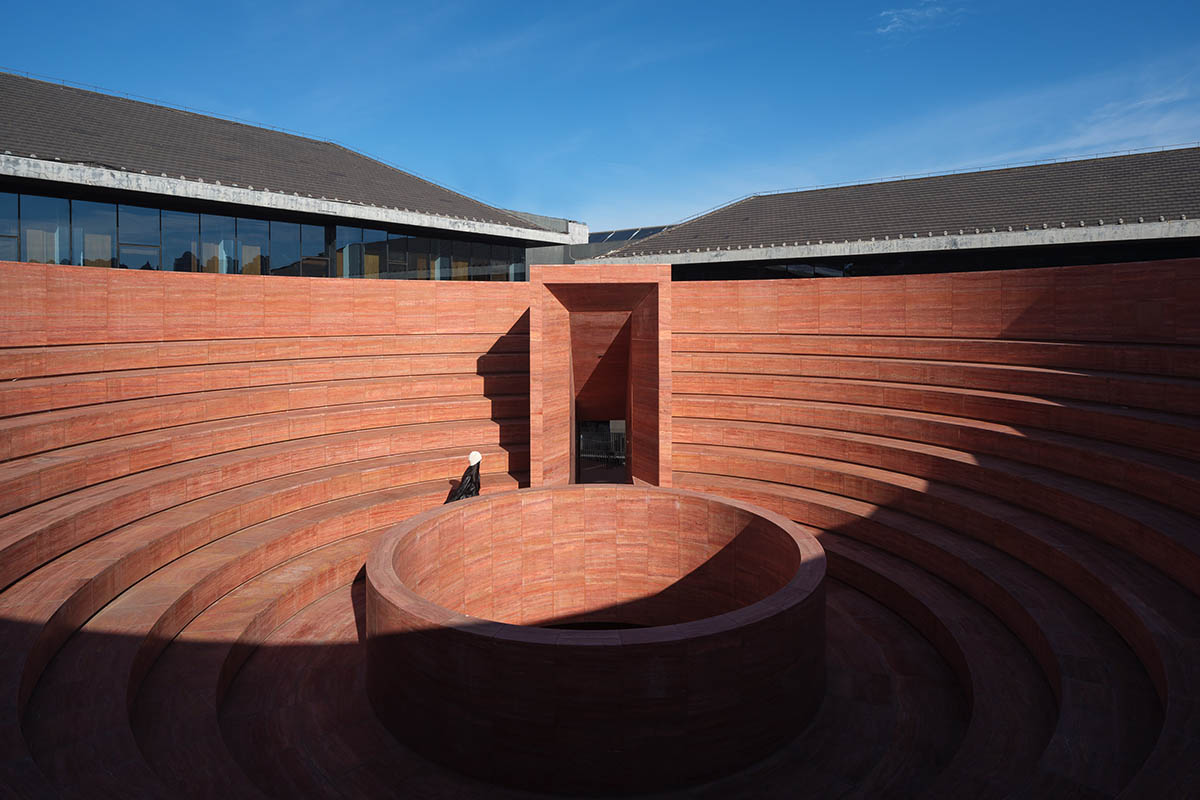

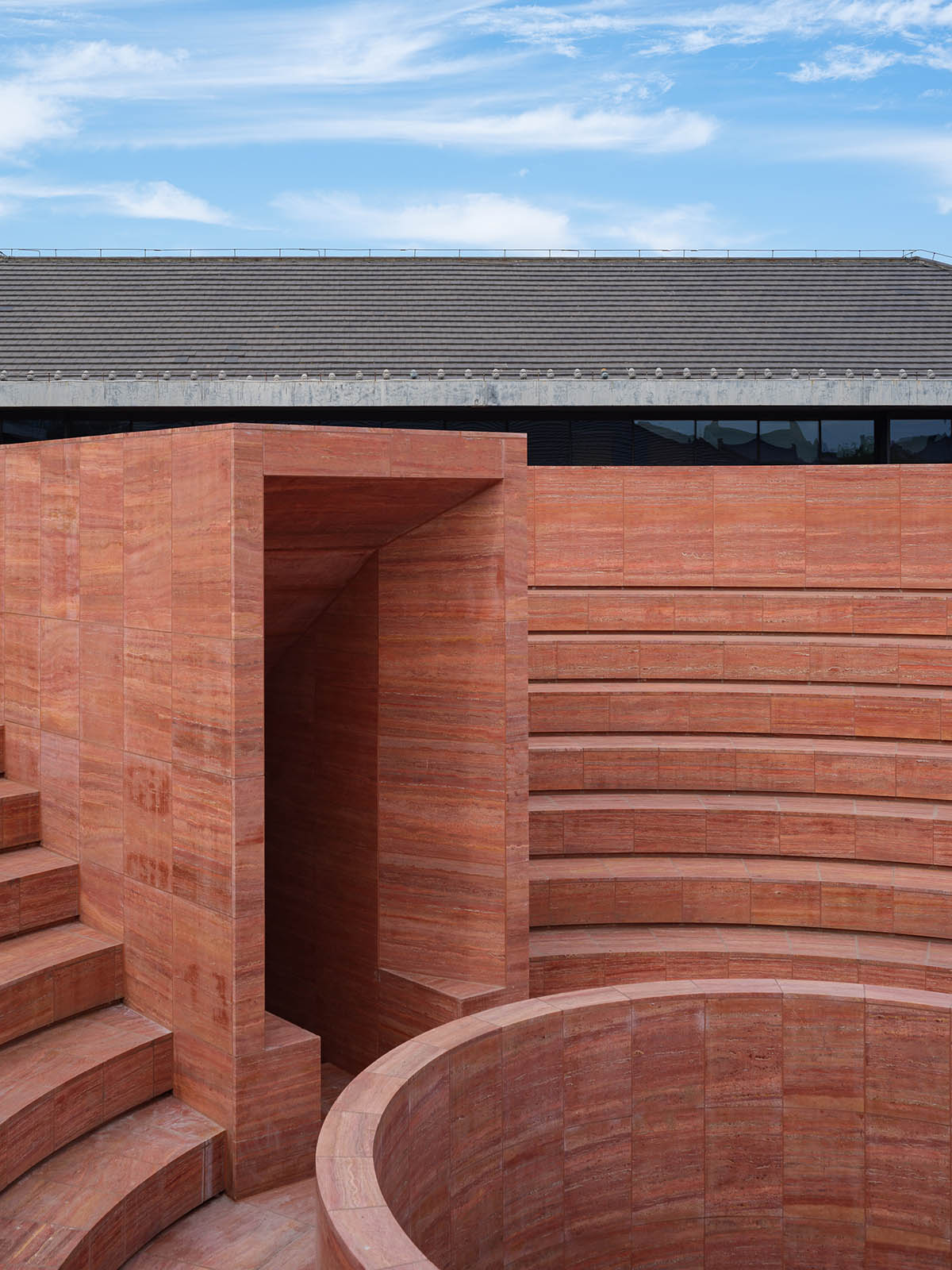
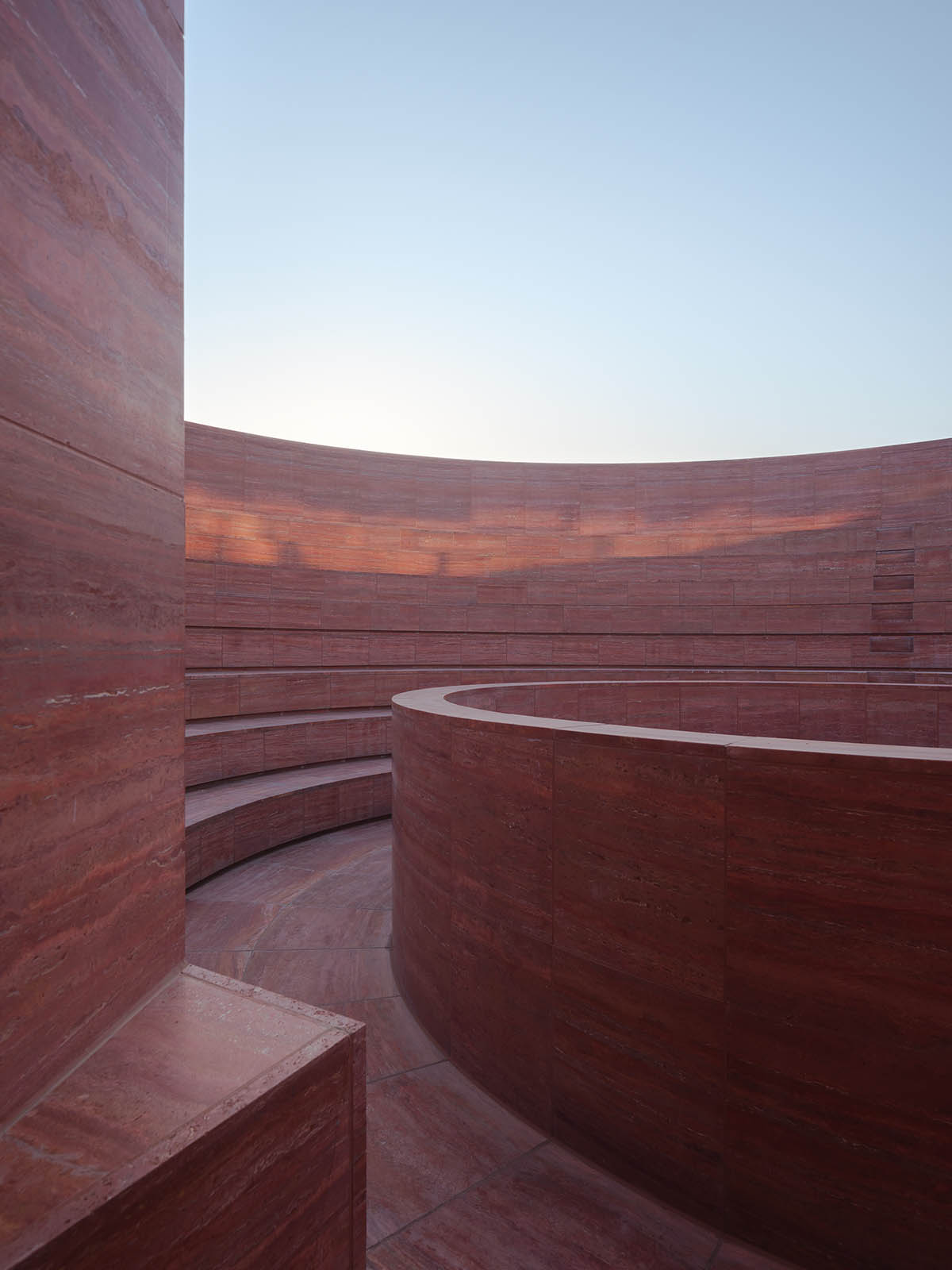
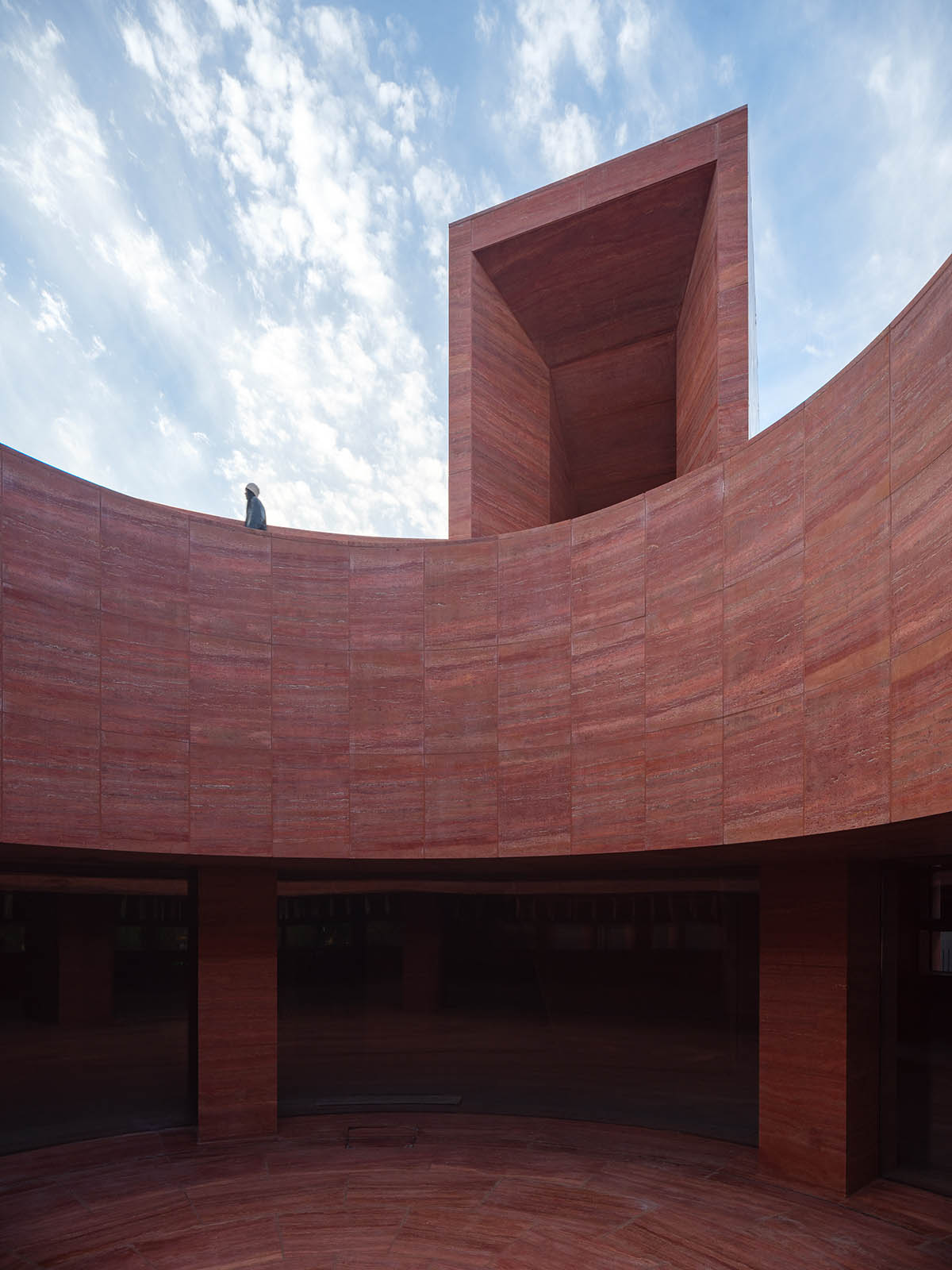
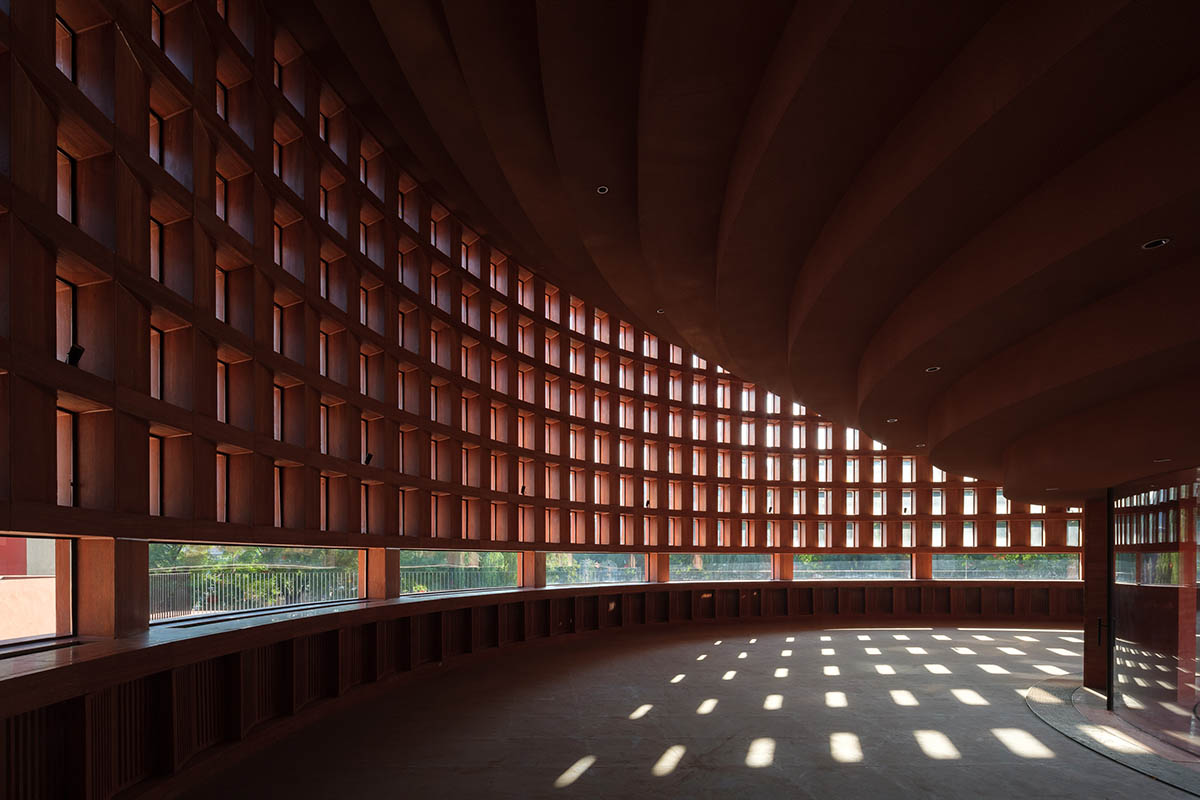
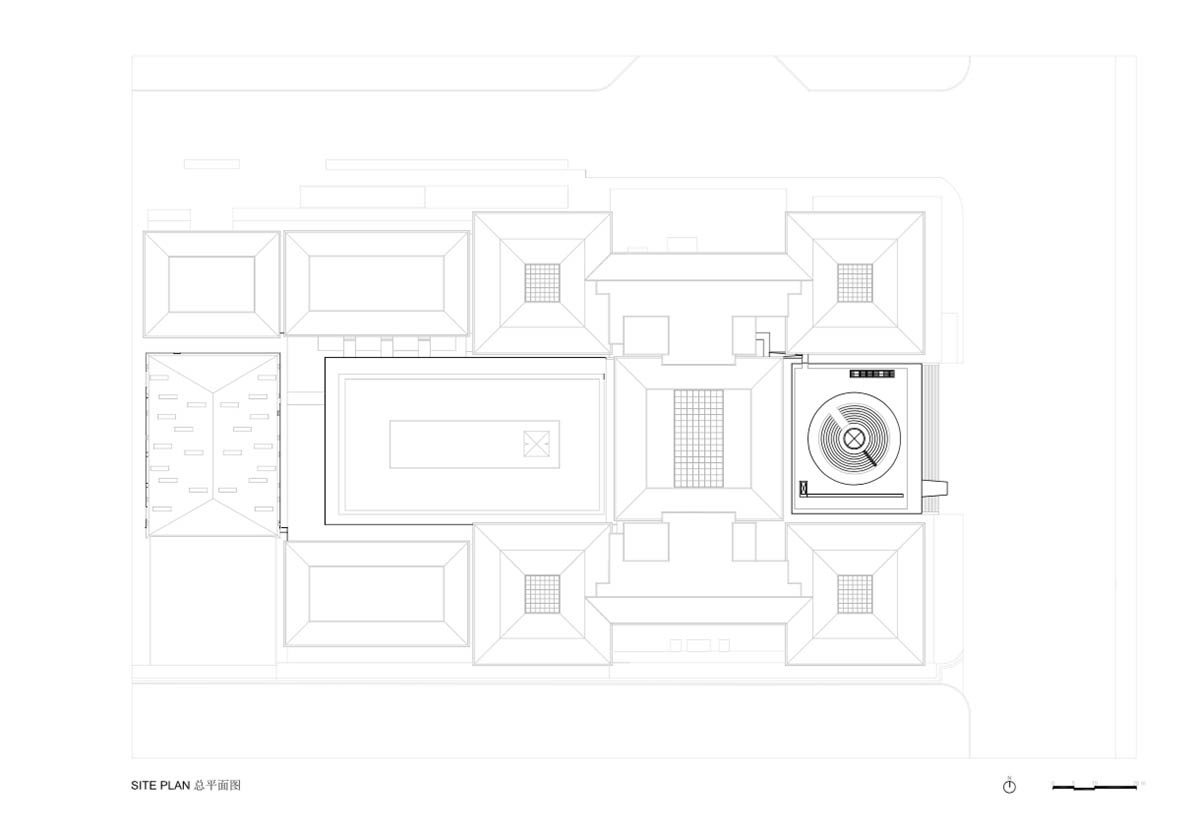
Site plan
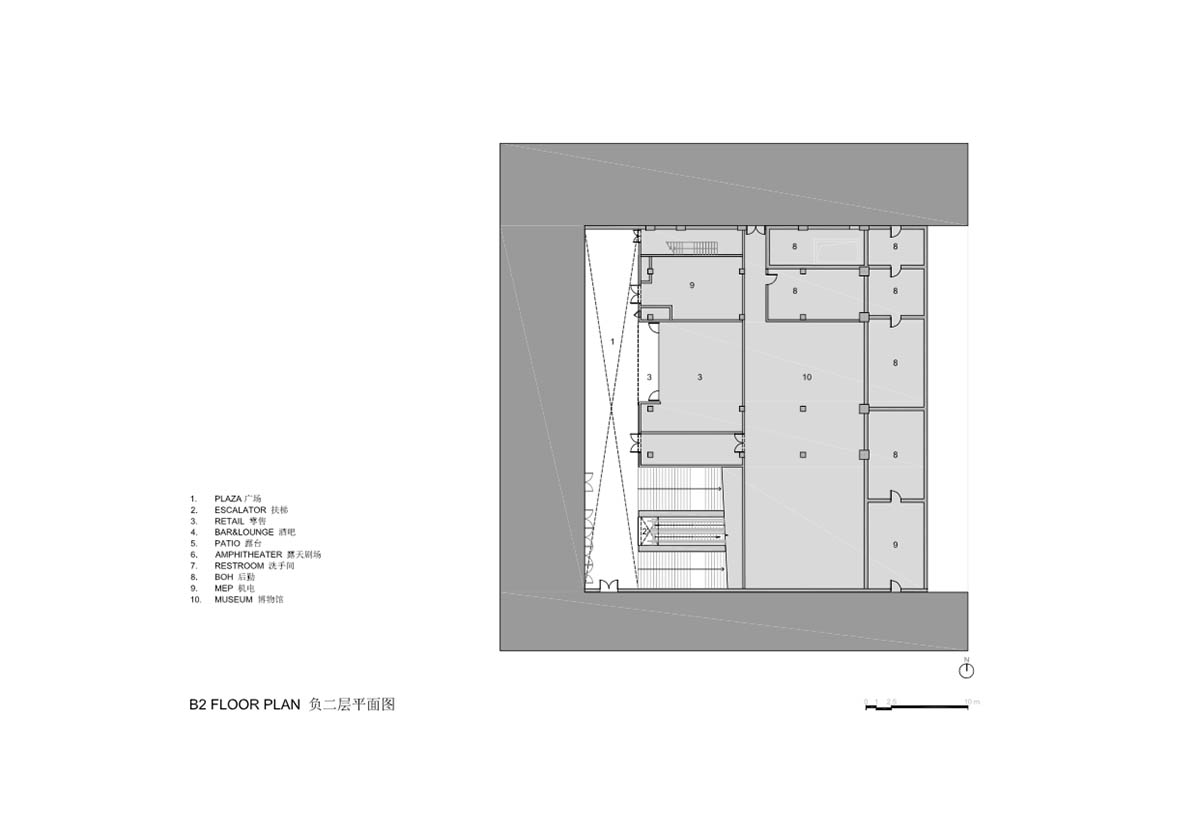
Basement 2 floor plan
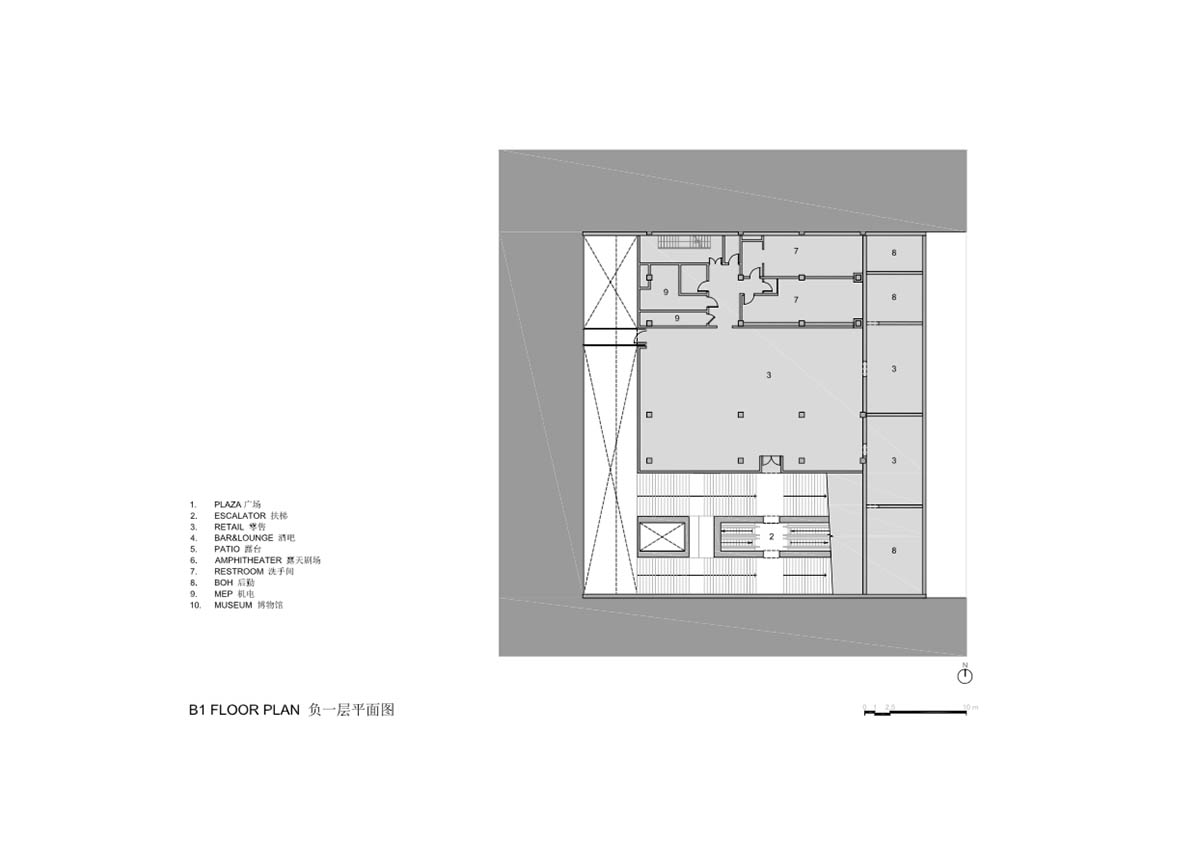
Basement 1 floor plan
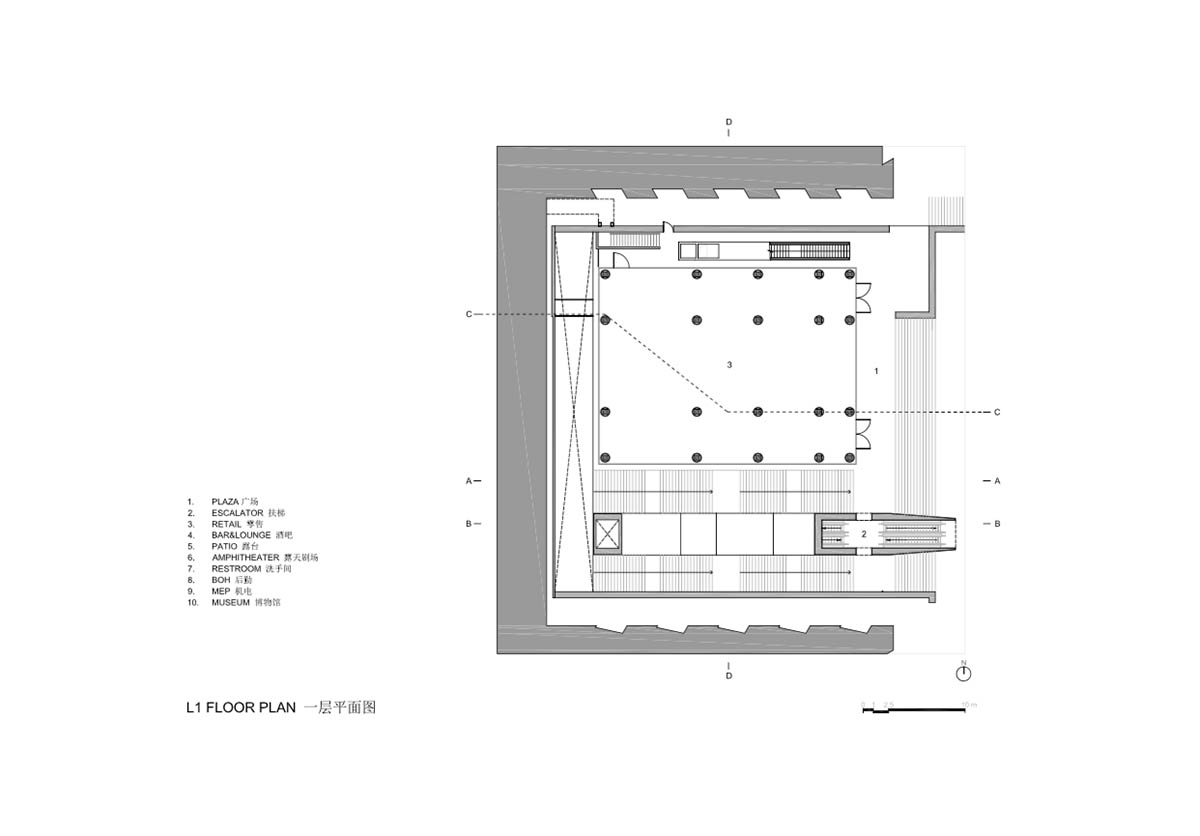
Level 1 floor plan
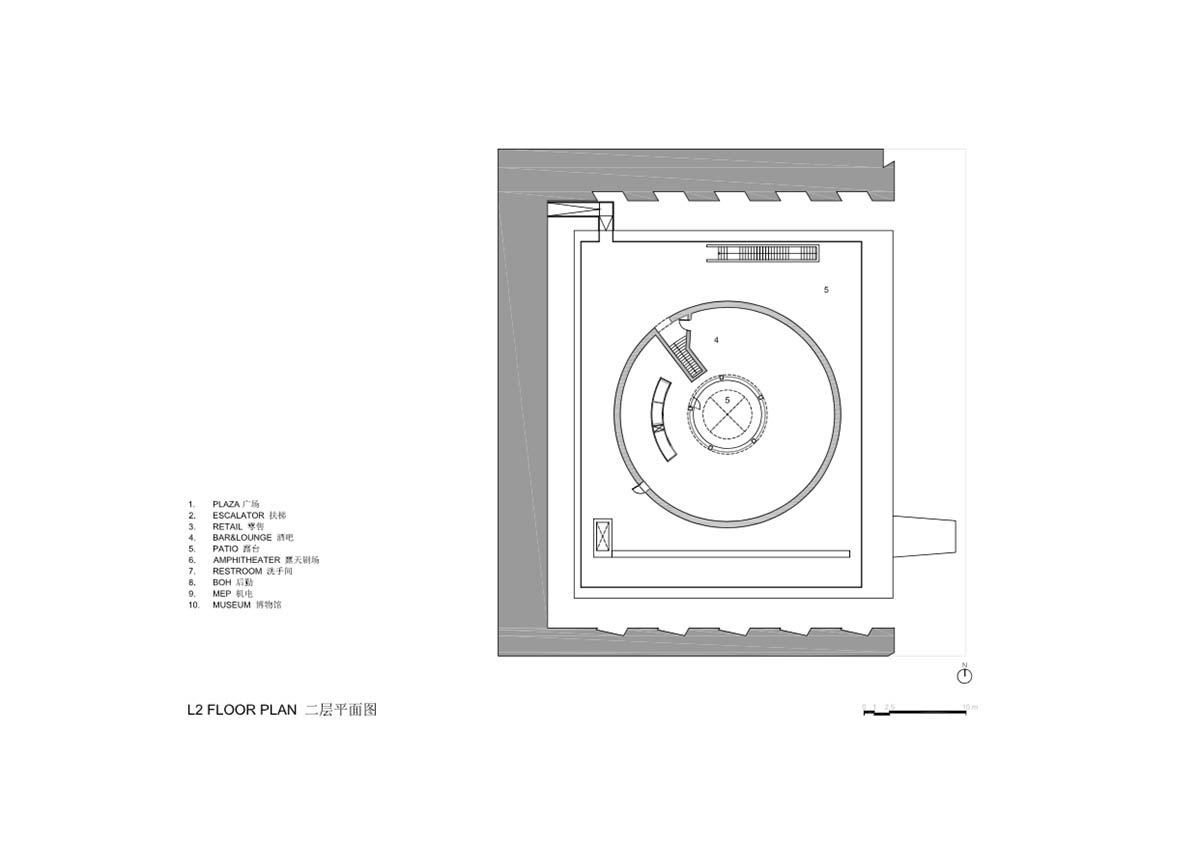
Level 2 floor plan
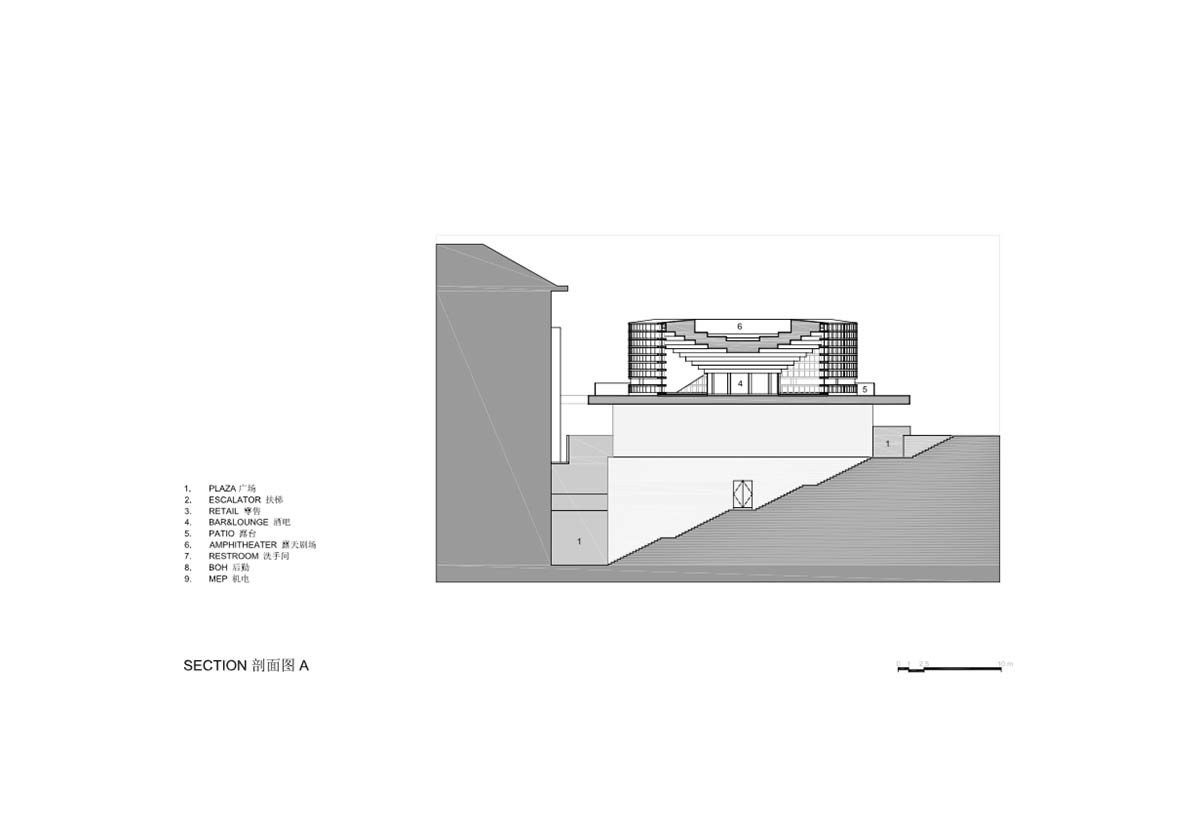
Section
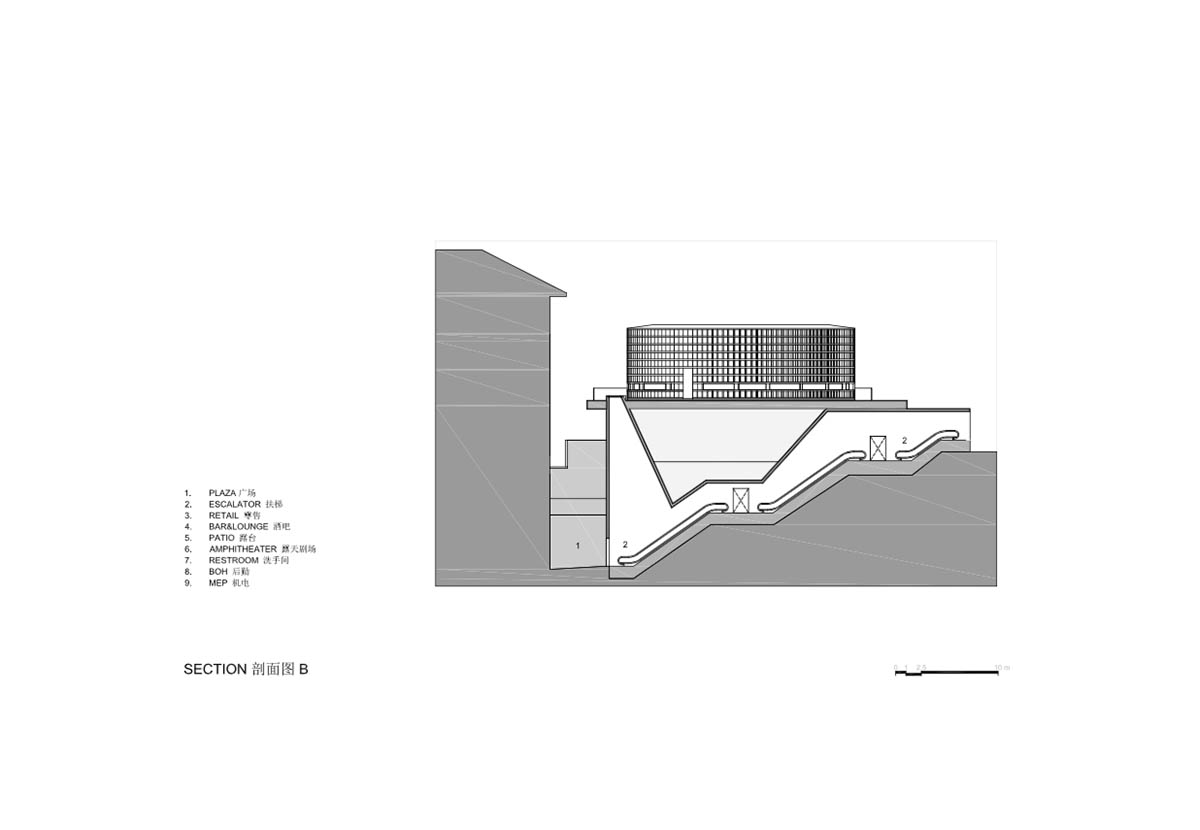
Section
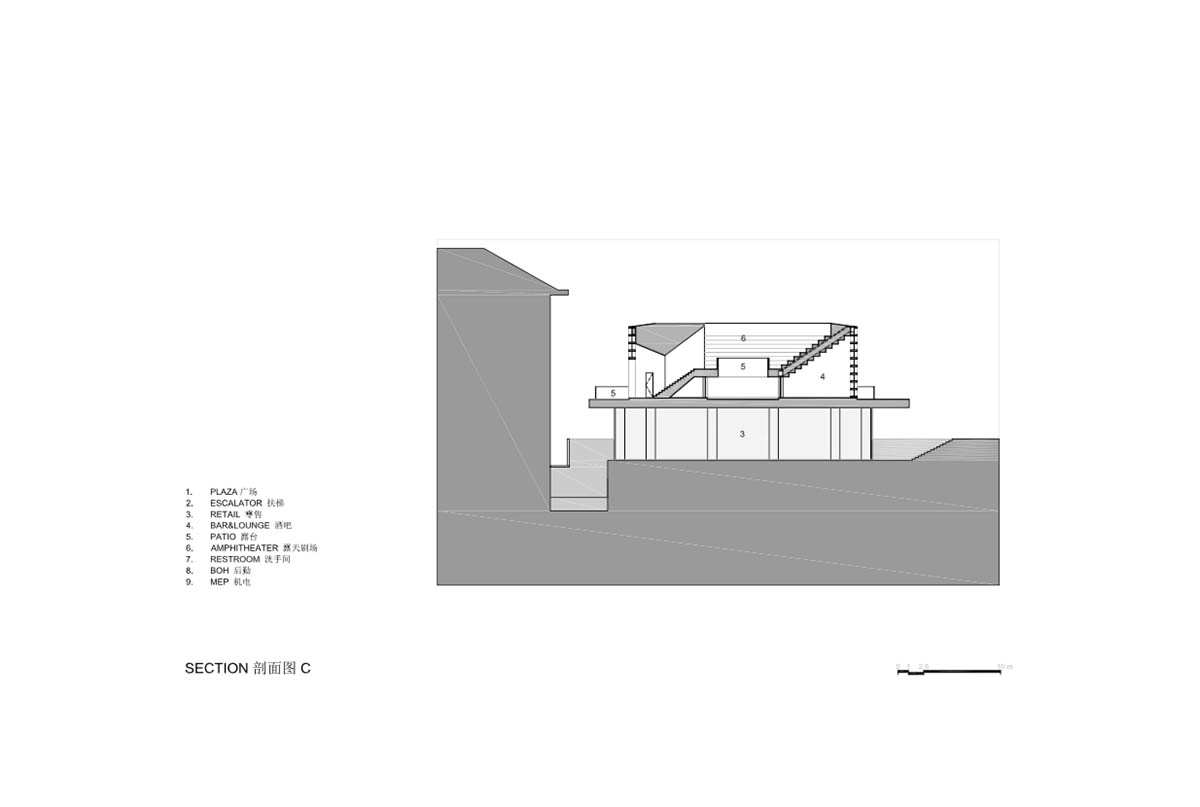
Section
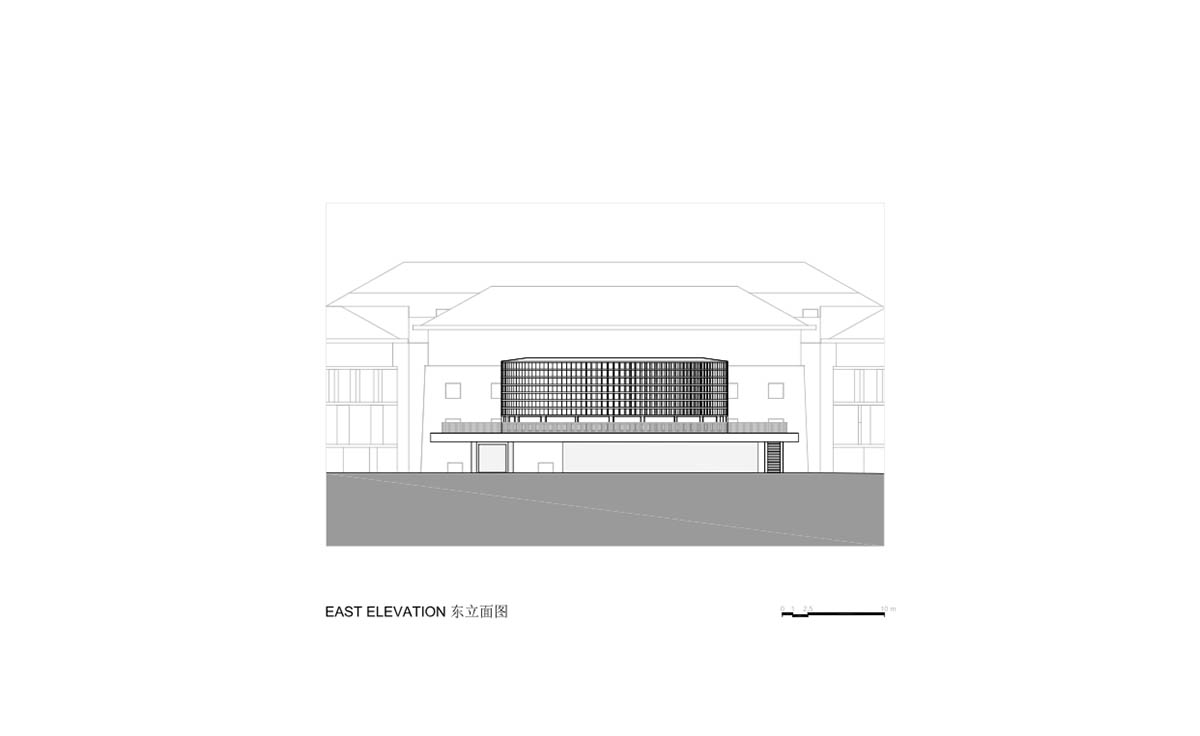
East elevation
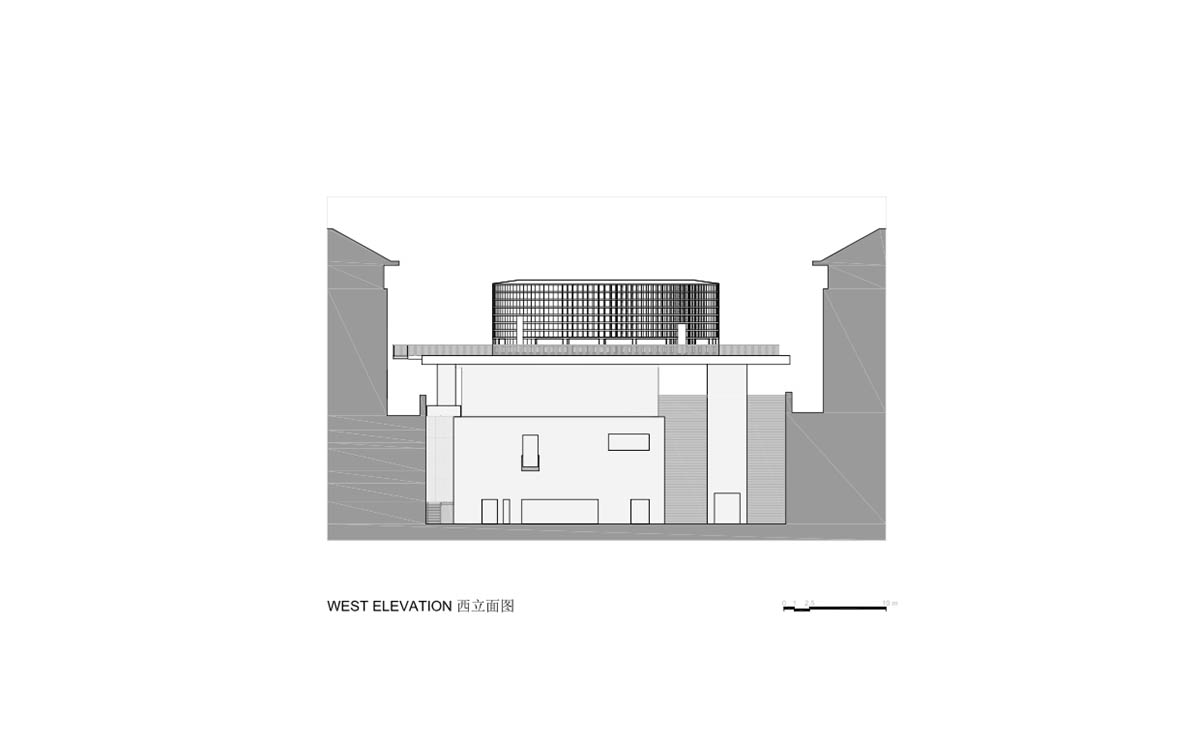
West elevation
Neri&Hu previously enclosed a Chinese artifact with fragmented walls to form a teahouse in Fuzhou, China. The studio transformed a former industrial building into it's own Shanghai office.
Neri&Hu was founded by Lyndon Neri and Rossana Hu in 2004. Based in Shanghai, the office works internationally to provide architecture, interior, master planning, graphic and product design services.
Read on WAC's exclusive interview with the partners here.
Project facts
Project: Qujiang Museum of Fine Arts Extension
Location: Xi’an, China
Client: Yungao Hotels (Group) Xi’an
Completion: December, 2021
Project type: Architecture
Program: Museum, retail
Gross area: 1,990sqm
Site area: 1,492sqm
Partners-in-charge: Lyndon Neri, Rossana Hu
Associate-in-charge: Zhao Lei
Design team: Ivy Feng, Joy Han, Tian Hua, Da Wenbo, Bella Wu
Architecture design: Neri&Hu Design and Research Office
Consultant
LDI: China Northwest Architectural Design and Research Institute Co., Ltd.
Lighting: Linea Light (China) CO., LTD.
Contractor: General Contractor: Power China Chonqing Engineering Co., Ltd.
Special Features: Architecture, Red stone facade, The Sculpture (Escalator tunnel), Concrete base, The Glowing Lantern (bar&lounge), Amphitheatre (Roof), Light Well (Escalator tunnel), Patio Area
Architectural – Materials: Red Tranvertino, small Aggregate concrete, blackened Steel, Clear Glass, Stucco
All images © Zhu Runzi unless otherwise stated.
All drawings © Neri&Hu Design and Research Office.
